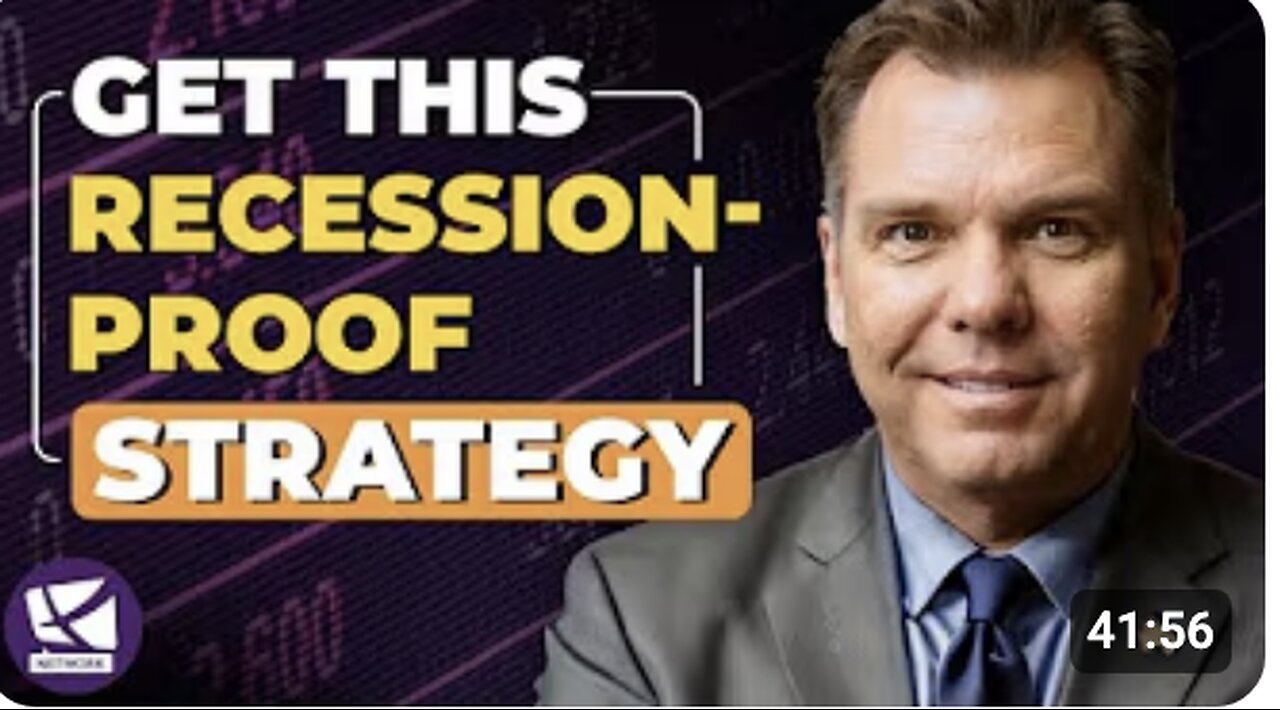Premium Only Content

How to Recession-Proof Your Wealth - Andy Tanner
See How Savvy Investors Are Using "The Power of 6" to Generate New Streams of Cash Flow: https://bit.ly/3U3HAPY
Is your portfolio ready for the next recession? In this episode of the Cashflow Academy, Andy Tanner is joined by faculty experts Noah Davidson and Cory Halliday to break down exactly how to recession-proof your investments—without guessing the top or bottom of the market. 🚫📉
You'll learn why most people panic and sell at the worst time, and what smart investors do instead. From covered calls and protective puts to understanding who you must become—not just what to do—this episode is packed with real-world insights for protecting (and growing) your wealth even in downturns.
We’ll talk about:
✅ The difference between net worth vs. cash flow investing
✅ Why timing the market rarely works
✅ How to build resilient, cash-flowing positions (using real examples)
✅ Why Buffett’s sitting on $300 billion in cash—and what that means for you
Whether you're a seasoned investor or just getting started, this episode will give you the mindset and strategies to stay confident while others panic.
00:00 Introduction
03:07 Importance of Cashflow
08:55 The Role of Emotions in Investing
11:20 Technical Analysis and Market Behavior
15:20 Real Estate and Stock Positions
18:49 Understanding Margin and Leverage
22:18 Strategic Selling: The Buffett Way
22:40 ExxonMobil: A Case Study in Long-Term Investment
24:03 The Power of Dividends
24:22 Navigating Recessions with Strong Assets
25:49 The Value of Holding and Cash Flow
28:53 Real Estate and Forced Selling
34:42 Market Sentiment and Investment Strategies
39:59 Preparing for Economic Downturns
-----
Disclaimer: The information provided in this video is for educational and informational purposes only. It should not be considered as financial advice or a recommendation to buy or sell any financial instrument or engage in any financial activity.
The content presented here is based on the speaker's personal opinions and research, which may not always be accurate or up-to-date. Financial markets and investments carry inherent risks, and individuals should conduct their own research and seek professional advice before making any financial decisions.
-
 28:53
28:53
The Rich Dad Channel
1 month agoThis Is Why You’re Getting Poorer - Robert Kiyosaki
1.95K -
 2:08:25
2:08:25
Side Scrollers Podcast
17 hours agoEXCLUSIVE: Marty O’Donnell BREAKS SILENCE On Bungie Drama + Kotaku Hypocrisy + MORE | Side Scrollers
5.8K1 -
 2:31:49
2:31:49
MattMorseTV
18 hours ago $0.32 earned🔴Trump's Oval Office BOMBSHELL.🔴
17.9K42 -
 25:14
25:14
GritsGG
13 hours agoRank 1 Player Spectates Casual Solos!
5.83K -
 LIVE
LIVE
Lofi Girl
2 years agoSynthwave Radio 🌌 - beats to chill/game to
1,087 watching -
 4:33:40
4:33:40
FreshandFit
8 hours agoAfter Hours w/ Girls
229K110 -
 2:33:36
2:33:36
Badlands Media
9 hours agoOnlyLands Ep. 21: From Trump’s VP Pick to Green Energy Grift
63.1K7 -
 1:07:26
1:07:26
Inverted World Live
12 hours agoThe War Against Robots w/ Joe Allen
94.5K5 -
 6:08:31
6:08:31
SpartakusLIVE
11 hours agoWARZONE NUKE IS BACK?! || Solo Challenge CHAMPION to start, duos w/ the Dawg later
97.6K1 -
 1:00:18
1:00:18
Man in America
13 hours agoBig Pharma’s Empire of Lies Is COLLAPSING as People Turn to Natural Medicine
60.9K20